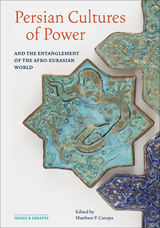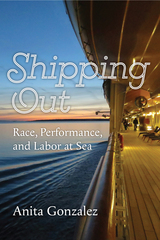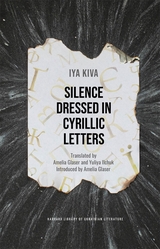4 books about Mairs, Rachel

Arabic Dialogues
Phrasebooks and the Learning of Colloquial Arabic, 1798–1945
Rachel Mairs
University College London, 2024
An examination of the diverse motivations and practices of Arabic-learning foreigners from nineteenth-century mass tourism and European colonialism in the Middle East, up to the Second World War.
During the nineteenth century and into the early twentieth century, more Europeans visited the Middle East than ever before, as tourists, archaeologists, pilgrims, settler-colonists, and soldiers. These visitors engaged with the Arabic language to differing degrees. While some were serious scholars of Classical Arabic, in the Orientalist mold, many did not learn the language at all. Between these two extremes lies a neglected group of language learners who wanted to learn enough everyday colloquial Arabic to get by. The needs of these learners were met by popular language books, which boasted that they could provide an easy route to fluency in a difficult language.
Arabic Dialogues explores the motivations of Arabic learners and the effectiveness of instructional materials, principally in Egypt and Palestine, by analyzing a corpus of Arabic phrasebooks published in nine languages (English, French, German, Spanish, Portuguese, Italian, Yiddish, Hebrew, Russian) and in the territories of twenty-five modern countries. Beginning with Napoleon’s Expédition d’Égypte, the book moves through the periods of mass tourism and European colonialism in the Middle East, concluding with the Second World War. The book also considers how Arab intellectuals understood the project of teaching Arabic to foreigners, the remarkable history of Arabic learning among Yiddish- and Hebrew-speaking immigrants in Palestine, and the networks of language learners, teachers, and plagiarists who produced these phrasebooks.
During the nineteenth century and into the early twentieth century, more Europeans visited the Middle East than ever before, as tourists, archaeologists, pilgrims, settler-colonists, and soldiers. These visitors engaged with the Arabic language to differing degrees. While some were serious scholars of Classical Arabic, in the Orientalist mold, many did not learn the language at all. Between these two extremes lies a neglected group of language learners who wanted to learn enough everyday colloquial Arabic to get by. The needs of these learners were met by popular language books, which boasted that they could provide an easy route to fluency in a difficult language.
Arabic Dialogues explores the motivations of Arabic learners and the effectiveness of instructional materials, principally in Egypt and Palestine, by analyzing a corpus of Arabic phrasebooks published in nine languages (English, French, German, Spanish, Portuguese, Italian, Yiddish, Hebrew, Russian) and in the territories of twenty-five modern countries. Beginning with Napoleon’s Expédition d’Égypte, the book moves through the periods of mass tourism and European colonialism in the Middle East, concluding with the Second World War. The book also considers how Arab intellectuals understood the project of teaching Arabic to foreigners, the remarkable history of Arabic learning among Yiddish- and Hebrew-speaking immigrants in Palestine, and the networks of language learners, teachers, and plagiarists who produced these phrasebooks.
[more]

Colonial Vocabularies
Teaching and Learning Arabic, 1870-1970
Sarah Irving
Amsterdam University Press, 2025
Language teaching and learning were crucial to Europeans’ colonial, national, and individual enterprises in the Levant, and in these processes, “Oriental language teachers” – as they were termed prior to the Second World War – were fundamental. European state nationalisms influenced and increasingly competed with each other by promoting their languages and cultures abroad, by means of both private and governmental actors. At the same time, learning Arabic became more prominent around the Mediterranean. The first half of the twentieth century corresponded with the emergence of new media; language was thought of as a cultural product to be exported into new cultural spaces. However, many blind spots remain in the history of linguistic thought and practices, including the forgotten and neglected voices of those involved in learning and teaching Arabic. This volume aims to revisit aspects of this linguistic encounter, including its vision, profile, priorities, trajectories, and practices.
[more]

Persian Cultures of Power and the Entanglement of the Afro-Eurasian World
Matthew P. Canepa
J. Paul Getty Trust, The, 2024
A cutting-edge analysis of 2,500 years of Persian visual, architectural, and material cultures of power and their role in connecting the world.
With the rise of the Achaemenid Empire (550–330 BCE), Persian institutions of kingship became the model for legitimacy, authority, and prestige across three continents. Despite enormous upheavals, Iranian visual and political cultures connected an ever-wider swath of Afro-Eurasia over the next two millennia, exerting influence at key historical junctures. This book provides the first critical exploration of the role Persian cultures played in articulating the myriad ways power was expressed across Afro-Eurasia between the sixth century BCE and the nineteenth century CE.
Exploring topics such as royal cosmologies, fashion, banqueting, manuscript cultures, sacred landscapes, and inscriptions, the volume’s essays analyze the intellectual and political exchanges of art, architecture, ritual, and luxury material within and beyond the Persian world. They show how Perso-Iranian cultures offered neighbors and competitors raw material with which to formulate their own imperial aspirations. Unique among studies of Persia and Iran, this volume explores issues of change, renovation, and interconnectivity in these cultures over the longue durée.
With the rise of the Achaemenid Empire (550–330 BCE), Persian institutions of kingship became the model for legitimacy, authority, and prestige across three continents. Despite enormous upheavals, Iranian visual and political cultures connected an ever-wider swath of Afro-Eurasia over the next two millennia, exerting influence at key historical junctures. This book provides the first critical exploration of the role Persian cultures played in articulating the myriad ways power was expressed across Afro-Eurasia between the sixth century BCE and the nineteenth century CE.
Exploring topics such as royal cosmologies, fashion, banqueting, manuscript cultures, sacred landscapes, and inscriptions, the volume’s essays analyze the intellectual and political exchanges of art, architecture, ritual, and luxury material within and beyond the Persian world. They show how Perso-Iranian cultures offered neighbors and competitors raw material with which to formulate their own imperial aspirations. Unique among studies of Persia and Iran, this volume explores issues of change, renovation, and interconnectivity in these cultures over the longue durée.
[more]

Women in the History of Language Learning and Teaching
Hidden Pioneers of Practice from Europe and Beyond (1400-2000)
Sabine Doff
Amsterdam University Press
This volume addresses the historical neglect of women’s contributions to language learning and teaching. While the historiography of language education has often focused on male-dominated frameworks, overlooking the pivotal roles women have played, the case studies in this book highlight female pioneers in language education across various cultural and linguistic traditions, from the Middle Ages to the twentieth century. Covering a wide range of languages – including Greek, Arabic, French, and English – and exploring the gendered dimensions of language education, where social class and gender influence both the languages taught and the methods employed, the book reveals women’s agency in shaping language education – and the systematic undervaluing of their contributions. In doing so, it calls for a broader, more inclusive historiography that recognises women’s significant impact on the field, often in non-institutional and domestic contexts, and a reconsideration of the history of language education to acknowledge the contributions of women globally.
[more]
READERS
Browse our collection.
PUBLISHERS
See BiblioVault's publisher services.
STUDENT SERVICES
Files for college accessibility offices.
UChicago Accessibility Resources
home | accessibility | search | about | contact us
BiblioVault ® 2001 - 2025
The University of Chicago Press









